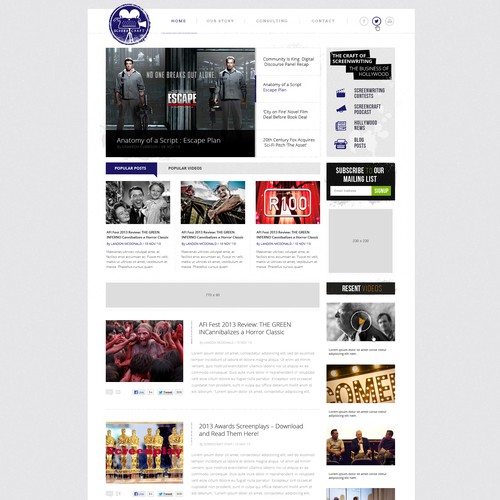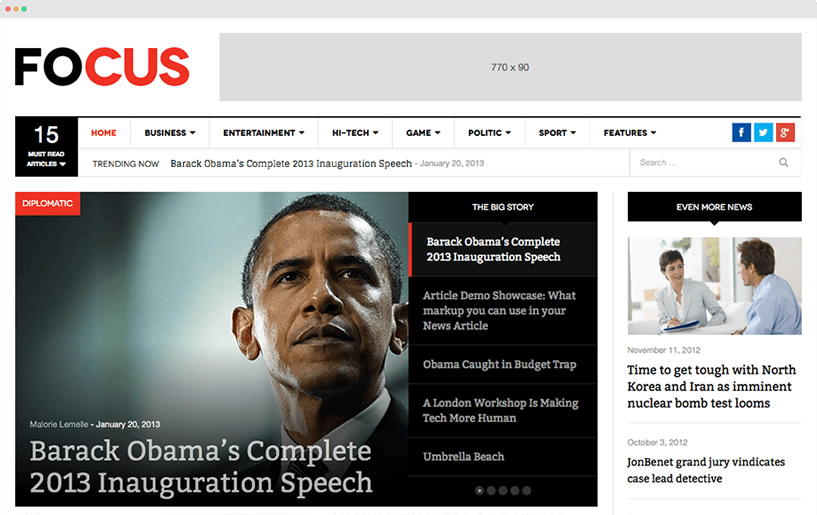The smart Trick of News Websites That Nobody is Discussing
Table of ContentsThe Basic Principles Of News Websites What Does News Websites Do?The News Websites DiariesNews Websites Fundamentals ExplainedSome Known Details About News Websites
It was down in the UK and Brazil yet up a few other countries, such as Greece, Bulgaria, and Poland (News Websites). This year, for the very first time, we asked about the different manner ins which people stay clear of the information and found that around half of avoiders (53%) were attempting to do so in a broad-brush or regular means as an example, by shutting off the radio when the information came on, or by scrolling past the information in social mediaYou said that you try to proactively stay clear of news.

I'm most likely choosing to learn more light-hearted tales than I used to at the moment. M, 51, UK Turning my back on information is the only method I feel I can cope sometimes. I need to knowingly make the effort to avert for the benefit of my very own psychological health and wellness.
Some Known Questions About News Websites.
Selective evasion of Ukraine news was highest in many of the nations closest to the conflict, strengthening searchings for from our additional study last year, soon after the war had started. Our data might not recommend a lack of passion in Ukraine from nearby countries however instead a desire to handle time or secure mental wellness from the really genuine horrors of battle.
Comparing Finland with a politically polarised nation such as the United States (see next graph) that is much less affected by the war, we find a really different pattern of subject evasion. In the United States, we find that consumers are extra likely to prevent subjects such as nationwide politics and social justice, where disputes over issues such as gender, sexuality, and race have actually become highly politicised.
American national politics are pretty toxic these days. I find in some cases that I need to disconnect from tales that just make me angry. F, 61, USA For some people, bitter and divisive political debates are a reason to turn off news entirely, but also for some political partisans, avoidance is frequently about shutting out point of views you don't wish to hear.

News Websites Can Be Fun For Everyone
Some are wanting to make information a lot more available for hard-to-reach groups, broadening the news program, commissioning even more motivating or positive information, about his or embracing useful or remedies journalism that offer individuals a feeling of hope click resources or individual company. In our study this year, we asked participants regarding their passion in these different strategies.
This explains why tales like Ukraine or nationwide politics perform well with news regulars but can at the exact same time transform less interested individuals away (News Websites). Discerning avoiders are much less thinking about all kinds of news than non-avoiders however in family member terms they do seem to be extra thinking about positive or solutions-based news

Little Known Questions About News Websites.
2023). This may hold true in the moment, however with time it appears to be leaving many individuals empty and much less pleased, which may be undermining our link with and trust in the news. Across markets, general count on news (40%) and trust fund in the sources individuals use themselves (46%) are down by a further 2 percent points this year.
Indeed, with the rear-view mirror, the COVID-19 trust fund bump is plainly visible in the complying with graph, though the direction of travel afterwards has been mixed. Sometimes (e.g. Finland), the trust fund rise has been preserved, while in others the upturn looks more like a spot in a story of ongoing lasting decline.
A few of the greatest reported levels of media criticism are located in nations with highest levels of mistrust, such as Greece, the Philippines, the USA, France, and the United Kingdom. The least expensive degrees of media criticism are frequently in those with higher levels of count on, such as Finland, Norway, Denmark, and Japan.
Rumored Buzz on News Websites
This year we asked participants concerning their choices for message, audio and video when taking in news online. On average, we find that the majority still choose to read the news (57%), instead of visit their website watch (30%) or listen to it (13%), but more youthful individuals (under-35s) are most likely to pay attention (17%) than older groups.
Behind the averages we discover substantial and surprising country differences. In markets with a solid reading practice, such as Finland and the UK, around 8 in ten still favor to review on the internet news, however in India and Thailand, around four in 10 (40%) say they choose to view information online, and in the Philippines that percentage mores than fifty percent (52%).